András Schiff - Bach: Goldberg Variationen, BWV 988 (2003) [Hi-Res]
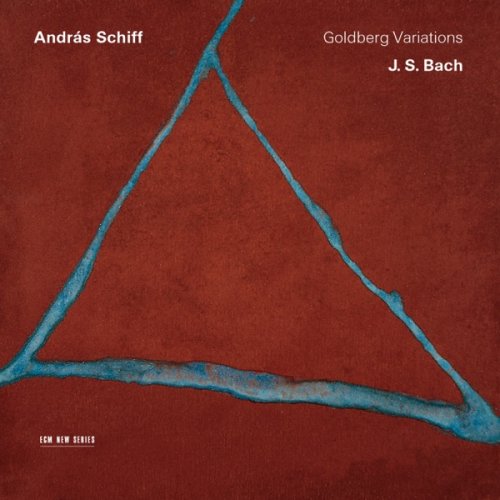
Artist: András Schiff
Title: Bach: Goldberg Variationen, BWV 988
Year Of Release: 2003
Label: ECM New Series
Genre: Classical, Piano
Quality: flac lossless / flac 24bits - 44.1kHz +booklet
Total Time: 01:11:17
Total Size: 278 / 412 mb
WebSite: Album Preview
TracklistTitle: Bach: Goldberg Variationen, BWV 988
Year Of Release: 2003
Label: ECM New Series
Genre: Classical, Piano
Quality: flac lossless / flac 24bits - 44.1kHz +booklet
Total Time: 01:11:17
Total Size: 278 / 412 mb
WebSite: Album Preview
---------
01. J.S. Bach: Aria mit 30 Veränderungen, BWV 988 "Goldberg Variations"-Aria (Live)
02. J.S. Bach: Aria mit 30 Veränderungen, BWV 988 "Goldberg Variations"-Var. 1 a 1 Clav. (Live)
03. J.S. Bach: Aria mit 30 Veränderungen, BWV 988 "Goldberg Variations"-Var. 2 a 1 Clav. (Live)
04. J.S. Bach: Aria mit 30 Veränderungen, BWV 988 "Goldberg Variations"-Var. 3 Canone all'Unisono a 1 Clav. (Live)
05. J.S. Bach: Aria mit 30 Veränderungen, BWV 988 "Goldberg Variations"-Var. 4 a 1 Clav. (Live)
06. J.S. Bach: Aria mit 30 Veränderungen, BWV 988 "Goldberg Variations"-Var. 5 a 1 ovvero 2 Clav. (Live)
07. J.S. Bach: Aria mit 30 Veränderungen, BWV 988 "Goldberg Variations"-Var. 6 Canone alla Seconda a 1 Clav. (Live)
08. J.S. Bach: Aria mit 30 Veränderungen, BWV 988 "Goldberg Variations"-Var. 7 a 1 ovvero 2 Clav. (Live)
09. J.S. Bach: Aria mit 30 Veränderungen, BWV 988 "Goldberg Variations"-Var. 8 a 2 Clav. (Live)
10. J.S. Bach: Aria mit 30 Veränderungen, BWV 988 "Goldberg Variations"-Var. 9 Canone alla Terza a 1 Clav. (Live)
11. J.S. Bach: Aria mit 30 Veränderungen, BWV 988 "Goldberg Variations"-Var. 10 Fughetta a 1 Clav. (Live)
12. J.S. Bach: Aria mit 30 Veränderungen, BWV 988 "Goldberg Variations"-Var. 11 a 2 Clav. (Live)
13. J.S. Bach: Aria mit 30 Veränderungen, BWV 988 "Goldberg Variations"-Var. 12 Canone alla Quarta (Live)
14. J.S. Bach: Aria mit 30 Veränderungen, BWV 988 "Goldberg Variations"-Var. 13 a 2 Clav. (Live)
15. J.S. Bach: Aria mit 30 Veränderungen, BWV 988 "Goldberg Variations"-Var. 14 a 2 Clav. (Live)
16. J.S. Bach: Aria mit 30 Veränderungen, BWV 988 "Goldberg Variations"-Var. 15 Canone alla Quinta in moto contrario (Live)
17. J.S. Bach: Aria mit 30 Veränderungen, BWV 988 "Goldberg Variations"-Var. 16 Ouverture a 1 Clav. (Live)
18. J.S. Bach: Aria mit 30 Veränderungen, BWV 988 "Goldberg Variations"-Var. 17 a 2 Clav. (Live)
19. J.S. Bach: Aria mit 30 Veränderungen, BWV 988 "Goldberg Variations"-Var. 18 Canone alla Sesta a 1 Clav. (Live)
20. J.S. Bach: Aria mit 30 Veränderungen, BWV 988 "Goldberg Variations"-Var. 19 a 1 Clav. (Live)
21. J.S. Bach: Aria mit 30 Veränderungen, BWV 988 "Goldberg Variations"-Var. 20 a 2 Clav. (Live)
22. J.S. Bach: Aria mit 30 Veränderungen, BWV 988 "Goldberg Variations"-Var. 21 Canone alla Settima (Live)
23. J.S. Bach: Aria mit 30 Veränderungen, BWV 988 "Goldberg Variations"-Var. 22 Alla breve a 1 Clav. (Live)
24. J.S. Bach: Aria mit 30 Veränderungen, BWV 988 "Goldberg Variations"-Var. 23 a 2 Clav. (Live)
25. J.S. Bach: Aria mit 30 Veränderungen, BWV 988 "Goldberg Variations"-Var. 24 Canone all'Ottava a 1 Clav. (Live)
26. J.S. Bach: Aria mit 30 Veränderungen, BWV 988 "Goldberg Variations"-Var. 25 a 2 Clav. (Live)
27. J.S. Bach: Aria mit 30 Veränderungen, BWV 988 "Goldberg Variations"-Var. 26 a 2 Clav. (Live)
28. J.S. Bach: Aria mit 30 Veränderungen, BWV 988 "Goldberg Variations"-Var. 27 Canone alla Nona (Live)
29. J.S. Bach: Aria mit 30 Veränderungen, BWV 988 "Goldberg Variations"-Var. 28 a 2 Clav. (Live)
30. J.S. Bach: Aria mit 30 Veränderungen, BWV 988 "Goldberg Variations"-Var. 29 a 1 ovvero 2 Clav. (Live)
31. J.S. Bach: Aria mit 30 Veränderungen, BWV 988 "Goldberg Variations"-Var. 30 Quodlibet a 1 Clav. (Live)
32. J.S. Bach: Aria mit 30 Veränderungen, BWV 988 "Goldberg Variations"-Aria da Capo (Live)
András Schiff returns to the Goldberg Variations in what will be regarded as one of the classical music events of the year. Two decades after his acclaimed account of the Variations for Decca, Schiff documents Bach’s towering masterpiece again, this time in a live recording for ECM New Series. As the New York Times said, “Mr Schiff is, in Bach, a phenomenon. He has quite simply internalized this music. He doesn’t so much perform it as emit, breathe it.” The fluency of the playing in this concert recording from Basel is quietly astonishing, the technical demands of the work transcended with uncanny gracefulness.
20 years after his acclaimed account of the Goldberg Variations for Decca, András Schiff documents Bach’s towering masterpiece again, this time in a live recording for ECM New Series.
As the New York Times said, “Mr Schiff is, in Bach, a phenomenon. He doesn’t so much perform it as emit, breathe it.” Made to address the changes that have taken place in his approach to Bach, (and also in response to numerous requests from fellow musicians and the public), Schiff’s new Goldberg recording is, from multiple perspectives, a major event. The fluency of the playing in this concert recording from Basel is quietly astonishing, the technical demands of the work transcended with uncanny gracefulness.
The old Decca recording, long regarded by music critics as one of the most distinguished Goldberg interpretations, was the work of an exceptional young musician who had already been playing the work for a decade. Indeed, even before his first public performance of the work, in Budapest in 1975, he had been “slowly working on it for four to five years.” Schiff received additional insight via his studies in London with George Malcolm, the great harpsichordist and expert on baroque performance practise. Although the Goldberg Variations were written for a two-manual harpsichord, “Mr Malcolm, a universal musician, always encouraged me to play Bach on the modern piano, with varied articulation, imaginative phrasing and minimal (if any) use of the sustaining pedal… The main question has to be, how do we play Bach’s music? His manuscripts give us very little information on certain aspects of interpretation: tempo, dynamics, phrasing, articulation, ornamentation. The performer was expected to fill in the gaps by following his musical knowledge and instinct. So, the pianist should not be a slave, but rather a re-creator. Bach’s text is sacred, but he gives us the liberty to make certain choices and decisions.”
On the structure of the work: “The strict observance of repeats is quite crucial in these Variations. When I was younger I tried to use all the resources available to achieve variety. These included transposing certain sections an octave up or down, something that could easily be done on the two-manual harpsichord with registration. So this was my homage to the harpsichord. It also emphasizes one aspect of my approach: the joy of playing, playfulness. Nevertheless twenty years later we may prefer subtler means.”
ECM recorded several performances of András Schiff playing the Goldberg Variations in the autumn of 2001, from which the pianist selected the Basel concert for release. Schiff feels the concert setting is optimal for the Goldberg:
“My view of the Goldberg Variations is largely helped by the live recording. It is a long journey and I believe in continuity. It’s not a fragmented sequence of 32 excerpts. The overall plan, the division of groups, rests, silences – they all depend on careful timing, which can only be achieved naturally in a live performance.”
One point in which this recording is clearly superior to its predecessor is the sound – attributable to Schiff’s ever more subtle touch and also to the instrument employed. András Schiff: “These days I always play a piano prepared by Maestro Angelo Fabbrini in Pescara, Italy. These instruments are perfectly voiced and tuned and possess a special ‘shining’ quality. I believe in the cantabile art of piano playing and this piano can sing. Twenty years ago I played the best available piano in London because I didn’t know anything better. There are, however, great differences between pianos, and technicians. Today I travel with my own piano and technician, Mr Rocco Cicchella, and I’m very happy.”
The CD booklet contains a “Guided Tour” of the Goldberg Variations, specially written by András Schiff for this release. At its conclusion he asks: “Isn't it understandable that every musician would want to play this wonderful work? Its deep humanity, spirituality, optimism and intellectual power speak to us directly in these 'distracted times'. This is one of those few journeys that can be repeated again and again.”
Also exclusive to this edition: a prologue, in acrostic form, by Indian writer Vikram Seth, well-known author of “An Equal Music”, “A Suitable Boy”, and “The Golden Gate”.
Whether in the role of recitalist, concerto soloist, chamber musician or accompanist, András Schiff is recognised as one of the leading pianists of his generation. Known especially for his exploration of the Austro-German masters – Bach, Mozart, Schubert, Haydn, Schumann, Mendelssohn and Beethoven (whose sonatas dominate his schedule from 2004 to 2007) - his repertoire also embraces Chopin, Scarlatti, Smetana, Dvorák, Janácek and fellow-Hungarians Bartók and Kurtág.
András Schiff was born in Budapest in 1953 and studied at the city’s Ferenc Liszt Academy with Pal Kadosa, György Kurtág and Ferenc Rados.
Schiff places a strong emphasis on recitals, chamber repertoire and collaboration with chamber orchestras, limiting his appearances in large-scale concertos. From 1989 until 1998 he was artistic director of the annual Mondsee chamber music festival in Austria and in 1995, together with oboist and composer Heinz Holliger, he founded the Ittinger Whitsun Festival in Switzerland. In the field of song, his collaborators have included Peter Schreier, Dietrich Fischer-Dieskau, Robert Holl, Thomas Quasthoff, Juliane Banse and Cecilia Bartoli.
András Schiff began directing performances from the piano in the early 1980s and he now also conducts a limited number of performances from the rostrum, with a focus on Bach choral works, Haydn, Mozart and Schubert symphonies and Mozart operas, including Così fan tutte, seen in 2001 at the Teatro Olimpico in Vicenza as part of Schiff’s Hommage à Palladio festival and at the Edinburgh Festival; Le nozze di Figaro is planned for June 2004. In 1999 he founded the Cappella Andrea Barca, an orchestra comprising leading chamber musicians and soloists, and which performs in Salzburg and Vicenza.
Among awards received by András Schiff are the Bartók Prize; the Claudio Arrau Memorial Medal of Düsseldorf’s Robert Schumann Society; the Kossuth Prize (the highest Hungarian honour), Denmark’s Leonie Sonnings Music Prize and the Penna d’Oro della Cittá di Vicenza.
Following his long associations with Decca and Warner Classics, András Schiff today records for ECM New Series. His previous recordings for the label include: “Music For Two Pianos” – compositions by Mozart, Reger and Busoni performed by Schiff with Peter Serkin; Schubert Fantasies (with Yuuko Shiokawa, violin); “A Recollection”, music of Janáček; “András Schiff In Concert”, with music of Robert Schumann; “Songs of Debussy and Mozart” (with Juliane Banse).
„Schiff is the master colourist who, like Glenn Gould in his later Sony recording, achieves impressive continuity between variations. Contrasts, too and never more so than in the sequence of variations Nos 20 to 22, taking us from brilliantly realised syncopations, to a glowering canon in sevenths then dipping suddenly for the intimate “stile antico” of the four-part 22nd variation. … As for overall style, repeats are often embellished, sometimes radically varied, such as the underlined counterpoint of No 8’ s first repeat and the shift from staccato to legato in No. 11. … This is a fascinating, beautiful, deeply pondered and profoundly pianistic “Goldbergs”, and while not “authentic” in the accepted scholarly sense, it is appreciative of Baroque manners and ornamentation.“ (Rob Cowan, Gramophone)
![Joe Lovano, Winston Salem Symphony & Michelle Merrill - a raft, the sky, the wild sea (2026) [Hi-Res] Joe Lovano, Winston Salem Symphony & Michelle Merrill - a raft, the sky, the wild sea (2026) [Hi-Res]](https://www.dibpic.com/uploads/posts/2026-02/1770314335_cover.jpg)
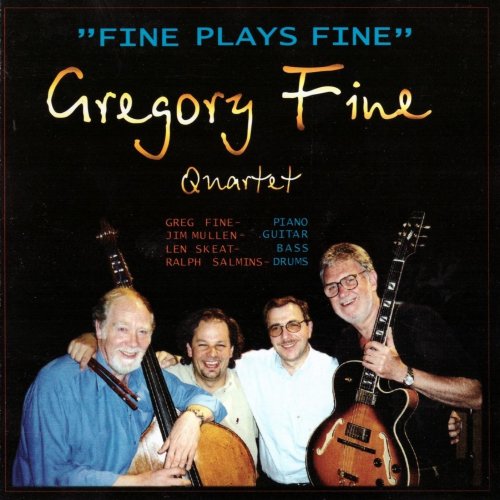

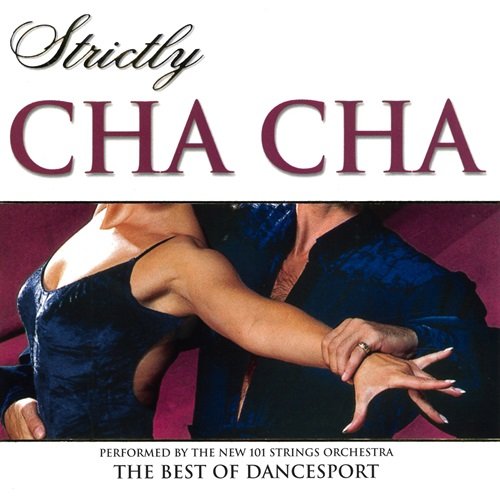
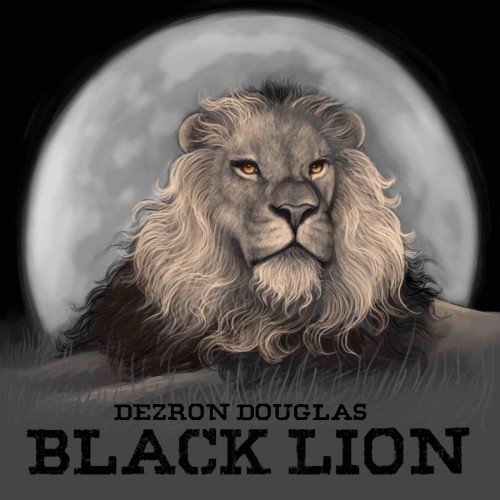
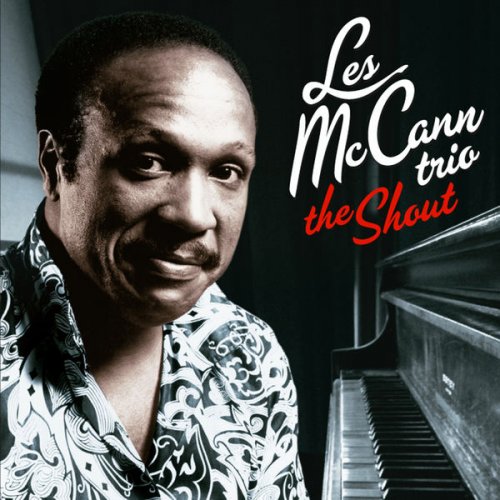
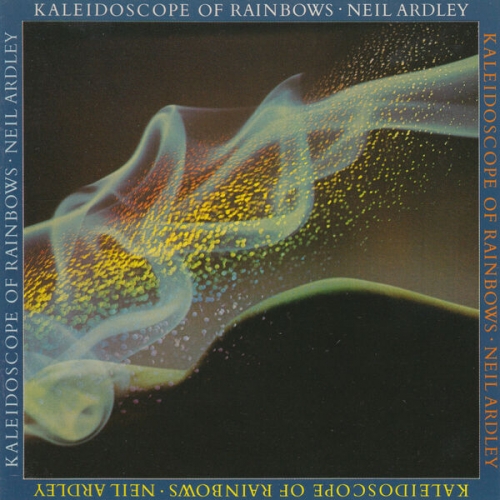
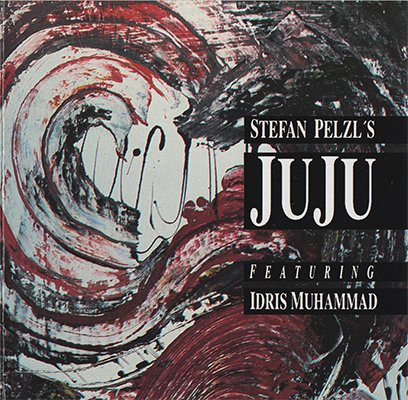
![Five Seasons - Lift Me Up (2026) [Hi-Res] Five Seasons - Lift Me Up (2026) [Hi-Res]](https://www.dibpic.com/uploads/posts/2026-02/1770196546_cover.jpg)